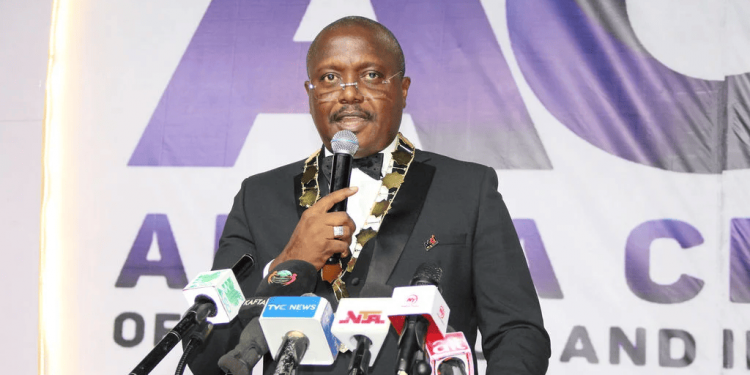The Abuja Chamber of Commerce and Industry (ACCI) has called on the federal government to create a reliable database of active businesses to bolster micro, small, and medium enterprises (MSMEs).
In a statement on Wednesday, ACCI President Emeka Obegolu praised Nigeria’s business community for its resilience in navigating the economic hurdles of 2024, commending their innovation and commitment to growth. He expressed optimism for improved opportunities in 2025.
Obegolu urged the government to harmonize tax policies, eliminate multiple taxation, and reduce operational costs hindering business performance. He also emphasized the need for reforms to enhance Nigeria’s ease of doing business and global competitiveness.
“Streamlining regulations, removing administrative bottlenecks, and implementing business-friendly policies are essential steps,” he said. “Improving access to financing and establishing a reliable business database will significantly support MSMEs, which are critical to the economy.”
The ACCI president commended the N4.06 trillion infrastructure allocation in the 2025 budget, noting its potential to boost productivity, create jobs, and spur growth in transport, energy, and housing. He also welcomed macroeconomic stabilization goals, such as reducing inflation and stabilizing the exchange rate, as essential for attracting investments.
However, Obegolu stressed the importance of effective budget implementation. He urged adherence to timelines, transparency, and a results-driven approach to ensure allocated funds achieve their intended impact.
He further advised the government to adopt realistic revenue projections, enhance collection mechanisms to curb leakages, and implement balanced tax policies that encourage business growth.
Reaffirming ACCI’s commitment to public-private collaboration, Obegolu pledged support for aligning policies with business realities and fostering private-sector-led economic growth. He also advocated for investments in green initiatives and inclusive strategies to benefit rural and marginalized communities.










